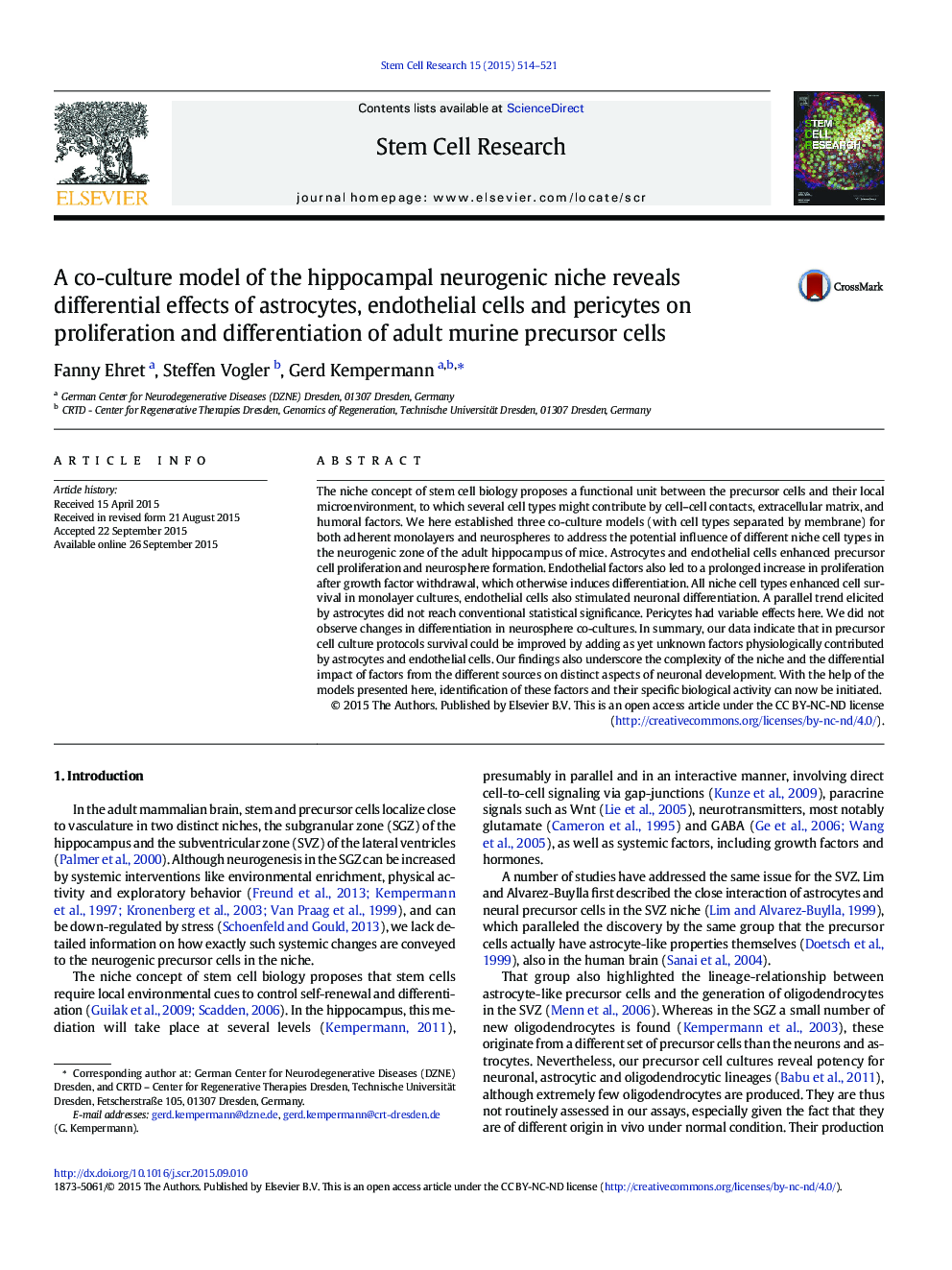| Article ID | Journal | Published Year | Pages | File Type |
|---|---|---|---|---|
| 2093900 | Stem Cell Research | 2015 | 8 Pages |
•We model the hippocampal neurogenic niche in three co-culture systems.•We examine secreted factors from endothelia, pericytes and astrocytes.•We show that all three cell types enhance survival.•Endothelial cells also promoted cell proliferation and differentiation.
The niche concept of stem cell biology proposes a functional unit between the precursor cells and their local microenvironment, to which several cell types might contribute by cell–cell contacts, extracellular matrix, and humoral factors. We here established three co-culture models (with cell types separated by membrane) for both adherent monolayers and neurospheres to address the potential influence of different niche cell types in the neurogenic zone of the adult hippocampus of mice. Astrocytes and endothelial cells enhanced precursor cell proliferation and neurosphere formation. Endothelial factors also led to a prolonged increase in proliferation after growth factor withdrawal, which otherwise induces differentiation. All niche cell types enhanced cell survival in monolayer cultures, endothelial cells also stimulated neuronal differentiation. A parallel trend elicited by astrocytes did not reach conventional statistical significance. Pericytes had variable effects here. We did not observe changes in differentiation in neurosphere co-cultures. In summary, our data indicate that in precursor cell culture protocols survival could be improved by adding as yet unknown factors physiologically contributed by astrocytes and endothelial cells. Our findings also underscore the complexity of the niche and the differential impact of factors from the different sources on distinct aspects of neuronal development. With the help of the models presented here, identification of these factors and their specific biological activity can now be initiated.
